Ken MacLeod's Blog, page 16
April 22, 2012
Alt.Fiction
A belated thank-you and appreciation for Alt.Fiction, where I was a Guest of Honour last weekend. This annual festival of fantastic literature is a bit like an SF/F convention, but sponsored and run by one of the capillaries of local/regional government that channel Arts Council funding. One can imagine lots of ways in which this could go wrong, all of which Alt.Fiction triumphantly doesn't. It's an enjoyable, well-organised and worthwhile event. I met old friends and acquaintances and made new ones - some faces were familiar from SF conventions, but most weren't, and I got a strong impression of new writers and readers sprouting like these green things that sprout at this time of year.
One person I met was Ian Sales, who sold me a copy of an anthology he's edited, Rocket Science, and his own stand-alone novella Adrift on the Sea of Rains (which he talks about here. I read the latter on the train back and it's very good indeed, as are the stories I've read so far in the anthology, including 'Going, Boldly' by the Edinburgh SF gang's very own Helen Jackson.
Big thanks to the organisers, especially Catherine Rogers and Adele Wearing, who looks back on the weekend here and links to others' impressions of the festival here.
One person I met was Ian Sales, who sold me a copy of an anthology he's edited, Rocket Science, and his own stand-alone novella Adrift on the Sea of Rains (which he talks about here. I read the latter on the train back and it's very good indeed, as are the stories I've read so far in the anthology, including 'Going, Boldly' by the Edinburgh SF gang's very own Helen Jackson.
Big thanks to the organisers, especially Catherine Rogers and Adele Wearing, who looks back on the weekend here and links to others' impressions of the festival here.
Published on April 22, 2012 00:25
April 17, 2012
Reviews round-up
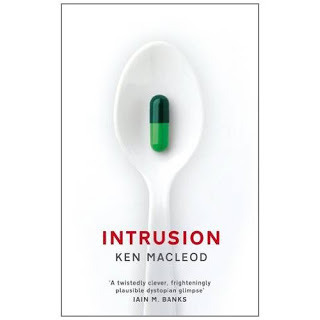
Intrusion continues to get good reviews, from newspapers at interestingly different quarters of the political compass.
Here's the Daily Mail:
Dramatising a novel of ideas is the opposite of easy but Ken MacLeod manages it at an apparent stroll. He also conjures up a scarily plausible and cleverly detailed vision of mid-21st-century life - the weather (damp and really cold), computers (with wraparound specs and virtual keyboards), health Nazism (the illicit backyard cafes, where people eat bacon butties and smoke), and the looming brave new world offered by bio-engineering. Excellent.
Well to the Mail's left, a review of this and other books in the weekly Socialist Worker says:
Left wing science fiction author Ken MacLeod brings us a dark vision of a dystopian future in a novel that some have likened to George Orwell’s Nineteen Eighty-Four.
This tale of totalitarianism revolves around “the fix”—a pill that change your genetic make-up to fit into a world of forced conformity.
It’s a world where New Labour-style “freedom” is forced down your throat, while you live a life surrounded by CCTV and surveillance drones.
Expect MacLeod’s characteristic imagination, wit and venom in the latest novel from the author of The Execution Channel and The Night Sessions.
David Langford, in a round-up of recent SF/F in that fine old Tory daily The Telegraph, writes:
Big Nanny State is watching you. In Ken MacLeod’s near-future Intrusion (Orbit, £18.99), surveillance drones blanket London, all the databases are linked, and routine police torture is followed by trauma counselling. When the pregnant heroine refuses the pill that should correct her unborn child’s genes, she finds such crimethink is no longer tolerated… Thoughtful, plausible and scary.
In a similar round-up for the only English-language socialist daily paper, my comrade and friend Mat Coward writes in the Morning Star:
In Intrusion (Orbit, £18,99) modern SF's leading Cassandra Ken MacLeod turns his fire on nannyism, that moralistic false turn which has contributed so much in the last 20 years to isolating the left from its natural supporters.At (very) different times in my chequered political past, I've sold Socialist Worker and the Morning Star, and I still read both regularly (and buy them when I get the chance) but I'm not entirely sure that I still count as a 'fellow socialist' - as I explained when I was interviewed a couple of years ago by the then up-and-coming and now world-famous radical journalist Laurie Penny for, yes, the Morning Star. I am sure, however, that these two left-wing newspapers have caught something about the book that's been missed by likewise generous reviewers who see it as a 'socialist dystopia'.
In a near-future Britain where women can't buy alcohol without proving they're not pregnant and second-hand books are no longer sold in case they carry traces of fourth-hand tobacco smoke, a Londoner named Hope, expecting her second child, decides that she won't take The Fix, a single pill designed to eradicate genetic "defects" in foetuses.
Under a benevolent, neo-democratic regime, The Fix is, of course, voluntary - until you try to refuse it.
MacLeod certainly delights in raising questions which creatively discomfort his fellow socialists.
But he shuns the cynicism and defeatism which mars most satirical writing - not to mention the defiant unreadability of many of his famous contemporaries.
Published on April 17, 2012 13:27
April 12, 2012
Impending Manifestations
I have a number of public events coming up, starting tomorrow!
Friday 13 April, 5.30 pm: Human 2.0, a panel on transhumanism/posthumanism with bioethicist Andy Miah, SF writer Justina Robson and sociologist Professor Steve Fuller at the National Museum of Scotland, as part of the Edinburgh International Science Festival.
Saturday 14 to Sunday 15 April: I'm one of the Guests of Honour heading up a guest list that most SF/F cons would kill for at the lively and highly commendable annual 'fantastic weekend for readers and writers of science fiction, fantasy and horror', now in its sixth year, Alt.Fiction, Phoenix Digital Arts Centre, Leicester.
And that's not all! Later this month, I have another two events one night apart:
Genetic Fictions: Genes and Genre, Tue 24 Apr 2012, 18.30 - 20.00, at the Conference Centre, British Library, London, Price: £7.50 / £5 concessions.
Wednesday 25th April 9:30am to 5pm in Zochonis TH A (B5), University of Manchester: a day-long workshop 'Putting the Science in Fiction' Interfaculty Symposium on Science and Entertainment.
Friday 13 April, 5.30 pm: Human 2.0, a panel on transhumanism/posthumanism with bioethicist Andy Miah, SF writer Justina Robson and sociologist Professor Steve Fuller at the National Museum of Scotland, as part of the Edinburgh International Science Festival.
What does it means to be human, past, present and future? As we re-engineer the human body, and even the human genome – through technology, drugs and genetic manipulations – how do we define and value our humanity? What are the social, political and cultural challenges inherent in our enhanced future? As part of our Future Human mini festival, sociologist and author Professor Steve Fuller, and sci-fi writers Ken MacLeod and Justina Robson, join ethicist Andy Miah to mull over these compelling questions. Are we facing a re(evolution) of the species?The following morning, I expect to bounce out of bed, shower, get dressed, pack, grab some toast and rush to the station to travel to Leicester, to arrive mid-afternoon for:
Saturday 14 to Sunday 15 April: I'm one of the Guests of Honour heading up a guest list that most SF/F cons would kill for at the lively and highly commendable annual 'fantastic weekend for readers and writers of science fiction, fantasy and horror', now in its sixth year, Alt.Fiction, Phoenix Digital Arts Centre, Leicester.
And that's not all! Later this month, I have another two events one night apart:
Genetic Fictions: Genes and Genre, Tue 24 Apr 2012, 18.30 - 20.00, at the Conference Centre, British Library, London, Price: £7.50 / £5 concessions.
Join leading Social Scientists from the ESRC Genomics Network, including Dr Joan Haran (Cesagen, Cardiff University) author of the forthcoming book 'Genetic Fictions: Genes, Gender and Genre', along with award-winning playwright Peter Arnott and Science Fiction author Ken MacLeod as they consider how genes and genetics are represented in literature and theatre. There will be plenty of time for questions and discussion. The evening will be chaired by Jude England, Head of Social Sciences at the British Library. [Further details here.]Another day, another sci/lit event:
Wednesday 25th April 9:30am to 5pm in Zochonis TH A (B5), University of Manchester: a day-long workshop 'Putting the Science in Fiction' Interfaculty Symposium on Science and Entertainment.
Many people look suspiciously at science in fictional media and may ask themselves: Why don't the creators of fiction ever talk to real scientists? In fact, those who write novels, craft television scripts, create movies, and produce stage plays do speak with scientists on a regular basis. This workshop explores how science provides challenges and opportunities for the creators of fiction. By bringing together leading entertainment professionals, novelists, arts scholars, and scientists the workshop will forge new relationships between the scientific community and the arts/entertainment community. One goal of the workshop is to begin discussions about creating a "Science and Entertainment" collaboration programme in the UK equivalent to the Science and Entertainment Exchange run by the National Academy of Sciences in the US.This event is free but spaces are limited - you can see how to book a place by clicking on the link.
Published on April 12, 2012 11:40
April 3, 2012
The Restoration Game is a Prometheus Award finalist
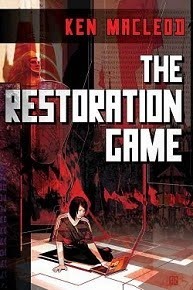
I'm delighted and honoured to learn that The Restoration Game is among the six finalists for the Prometheus Award from the Libertarian Futurist Society.
I'm also, I have to admit, surprised. The Prometheus Award is for SF/F novels that 'stress the importance of liberty as the foundation for civilization, peace, prosperity, progress and justice.' While I whole-heartedly agree with that premise, it was far from uppermost in my mind when I wrote the book. But I quite see how it could be read that way, and I'm glad that it has been.
The Restoration Game contains more incidents based on real events than any other of my books. The Ural Caucasian Mineral Company's annual report was based on one from the real-life Ural Caspian Oil Corporation that I found in a dusty brown envelope. This and other incidents are described here.
Published on April 03, 2012 17:40
April 1, 2012
Fictitious narrative considered harmless
My maternal grandmother had a short word for any kind of fiction: lies. She alluded to beloved characters in literature as (for instance) 'yon wee Alice of the lies.' Not that she had any philistine or puritanical scruple about her own children, or grandchildren, reading the stuff: I and my brothers and sisters read Alice and stacks and stacks of novels and story-books (mainly about girls at boarding schools, as I recall) on wet summer days in Lochcarron. Most summers in Lochcarron it rains a lot. For boys' adventure stories we had to visit our other grandmother, in Skye. She had many sons and grandsons, all of whom had read the endless adventures of Biggles. On Skye it rains a lot too.

Twenty-first century science has caught up with my grandmothers. Fiction is indeed nothing but lies, and the best that can be said for it is that it is a harmless if unprofitable diversion. It keeps us out of mischief and passes the time.
The one thing it cannot do is help us to understand human nature and the motivations of other people. If it did, the work done in Departments of English (etc) Literature would be of enormous interest to Departments of (e.g.) Business Studies, Politics, and Sociology. Oddly enough it is not.
For real insight into human behaviour, practical people turn to science.
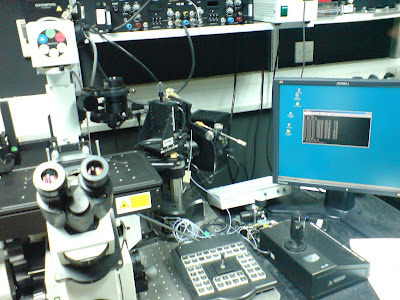
Psychology has, over the past century, moved from misty speculation and hazy introspection to hard, repeatable laboratory and field experiment. Neuroscience is a hair's-breadth from tracking our thoughts in real time. The dismal truth the convergent sciences of the brain and behaviour have delivered is that our own spontaneous understanding of these matters is specious.
'Folk psychology' and introspection give us no insight at all into our own minds, let alone those of others. The most it can give us is a rough-and-ready 'Theory of Mind' that enables us, with notorious unreliability, to predict the day-to-day actions of our fellows.
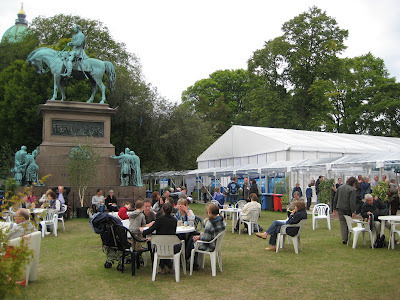
How, then, could literary or genre fiction, based as they are - at best - on folk psychology, give us any insight into the human condition? Reading the greatest works of literature will no more help you to understand human behaviour than watching Star Trek will help you discover a method of reaching superluminal velocities. The most it will give you is a selective and partial (in every sense) understanding of the author's own folk psychology.
Reading Jane Austen will certainly help you to understand the mind and heart of a young woman: Jane Austen. It may give you a limited insight in that particular young woman's Theory of Mind. But this is not a great deal of use to you, because you will never meet Jane Austen, who is dead.
And Elizabeth Bennett never existed, except as a figment of Jane Austen's Theory of Mind. Not matter how deeply you think you understand Elizabeth Bennett, it won't help you to overcome pride and prejudice to find the love of your life. Finding the love of your life must be surprisingly easy, considering how often it happens, but this truth is far from universally acknowledged.

Twenty-first century science has caught up with my grandmothers. Fiction is indeed nothing but lies, and the best that can be said for it is that it is a harmless if unprofitable diversion. It keeps us out of mischief and passes the time.
The one thing it cannot do is help us to understand human nature and the motivations of other people. If it did, the work done in Departments of English (etc) Literature would be of enormous interest to Departments of (e.g.) Business Studies, Politics, and Sociology. Oddly enough it is not.
For real insight into human behaviour, practical people turn to science.

Psychology has, over the past century, moved from misty speculation and hazy introspection to hard, repeatable laboratory and field experiment. Neuroscience is a hair's-breadth from tracking our thoughts in real time. The dismal truth the convergent sciences of the brain and behaviour have delivered is that our own spontaneous understanding of these matters is specious.
'Folk psychology' and introspection give us no insight at all into our own minds, let alone those of others. The most it can give us is a rough-and-ready 'Theory of Mind' that enables us, with notorious unreliability, to predict the day-to-day actions of our fellows.

How, then, could literary or genre fiction, based as they are - at best - on folk psychology, give us any insight into the human condition? Reading the greatest works of literature will no more help you to understand human behaviour than watching Star Trek will help you discover a method of reaching superluminal velocities. The most it will give you is a selective and partial (in every sense) understanding of the author's own folk psychology.
Reading Jane Austen will certainly help you to understand the mind and heart of a young woman: Jane Austen. It may give you a limited insight in that particular young woman's Theory of Mind. But this is not a great deal of use to you, because you will never meet Jane Austen, who is dead.
And Elizabeth Bennett never existed, except as a figment of Jane Austen's Theory of Mind. Not matter how deeply you think you understand Elizabeth Bennett, it won't help you to overcome pride and prejudice to find the love of your life. Finding the love of your life must be surprisingly easy, considering how often it happens, but this truth is far from universally acknowledged.
Published on April 01, 2012 06:57
March 28, 2012
The fruit-fly at the end of the universe
 Genomics forum Playwright in Residence Peter Arnott has spent a year reading, talking and thinking about genomics, evolution, life, the universe and everything. I've seen the stacks of books on his desk and I've seen him working, and I can say he has worked hard, throwing himself into a whole new field of knowledge with admirable enthusiasm and application. Never content with received wisdom, Peter has delved deep and thought for himself, as his earlier production on the Scopes Trial showed.
Genomics forum Playwright in Residence Peter Arnott has spent a year reading, talking and thinking about genomics, evolution, life, the universe and everything. I've seen the stacks of books on his desk and I've seen him working, and I can say he has worked hard, throwing himself into a whole new field of knowledge with admirable enthusiasm and application. Never content with received wisdom, Peter has delved deep and thought for himself, as his earlier production on the Scopes Trial showed. Tomorrow night (7.30 pm) at the Traverse we have an opportunity to enjoy the fruits of his intellectual and artistic labour, with his theatrical production Talent Night in the Fly Room.
Somewhere in the far future, the last genetically engineered survivors of the human race come together one last time in the library at the end of time. Stored here in the bowels of Antarctica is the sum total of all human knowledge, as well as a DNA library of every species that has ever lived. Unfortunately, everyone has forgotten how to read.Tickets are only £6 and can be booked by calling the box office on 0131 228 1404 or clicking the 'Book Now' button on the website.
Published on March 28, 2012 11:23
March 27, 2012
Dejah View
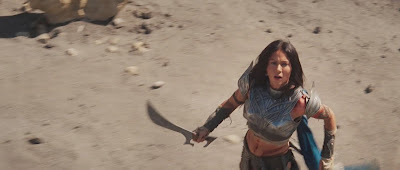
(Source.)
'Take to your paraloons!'
This bizarre speech-bubble, and a panel showing John Carter, Dejah Thoris and maybe someone else dropping from the sky hanging from balloons attached to their parachute harnesses as their stricken flyer spirals groundward, are almost my only memories of my first encounter with Barsoom. (You can see what's very likely the preceding page here.) I seem to remember also the couple gazing fondly at a large egg, from which a Carter-Thoris offspring is soon to hatch. John Carter was the first married hero I'd ever seen in a comic. That wasn't the only shock on its pages, peopled as they were by hideous entities that seemed to me almost demonic.
Years later, in my early teens, I met them again in print. This time it was my mother who made the same mistake, and expelled my borrowed Burroughs paperbacks from the manse. It's probably as well she judged the books by their covers: she'd have been far more upset if she'd looked at the pages. Just as well, also, that she never noticed that they shared an author with the Tarzan books, which she regarded as innocent enough, more or less on a par with Biggles.
Colour, adventure, and an aura of sexuality and scepticism - all these cunning priests and false gods - were what stuck in my mind. That and cliff-hanger endings, which - given the random nature of my access to the stories - left me feeling cheated. I more or less forgot Burroughs, though I smiled at the allusions I found in other, ostensibly more sober, tales set on Mars. Every respected SF writer, it seems, has to pay back that early debt. Blish's genius kid Dolph Haertel, stranded by a glitch in his home-built space-drive, notes of one of the moons that it was not 'the low-hanging, looming Deimos' of Burroughs' Mars.
So, though never a great ERB fan, I recalled the tales with enough affection that I was thrilled to see the first clip from a trailer of the John Carter movie on some film discussion programme a year or so ago. I have to see this, I said. Reviews on release were so mixed that I was reluctant to drag anyone along but my daughter, the other SF fan in my family. We saw it at a mid-day screening last Wednesday. Apart from three other people, one of whom left early, we had the cinema to ourselves.
We enjoyed it. Not a dull minute. The film has flaws all right - there are plenty of daft minutes - but it's one I'd happily watch again. (For a review that strikes me as reasonably close to my own experience of the film's strengths and weaknesses, go here.)
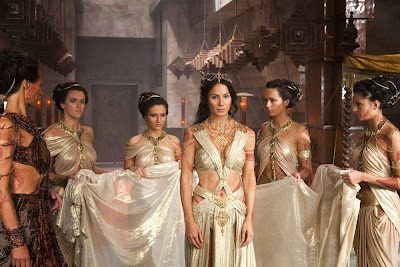
(Source.)
Published on March 27, 2012 08:15
March 25, 2012
A Sunday Prayer
Please God, deliver us from biologists doing theology. Of course, it's always possible that biologists doing theology only appears to be a bad thing because of our limited knowledge.
In which case, carry on as You were.
Thank You.
That will be all.
In which case, carry on as You were.
Thank You.
That will be all.
Published on March 25, 2012 20:48
March 23, 2012
Another Practical Handbook

The other day I picked up in the library a nifty little management and self-help paperback called The Art of Always Being Right, by Arthur Schopenhauer. I read it in half an hour, with yelps of joy and pain. In the fine tradition of Machiavelli, Edward Luttwak and Darrel Huff, this book enlightens the just in the guise of instructing the wicked. (Or, just maybe, the other way round.)
You can read all about it and read the whole thing free online in several places, including a graphic version by someone fully aware of all internet traditions. (Via.)
Remember to use this power only for good.
Published on March 23, 2012 11:07
Intrusion book launch at Pulp Fiction
The new Edinburgh bookshop/cafe Pulp Fiction, which specialises in second-hand genre paperbacks and excellent coffee, cakes and biscuits, has a regular schedule of literary events. This Wednesday the bookshop, along with the Genomics Forum, hosted one for Intrusion. The free but ticketed event was well attended, as you can see from Chris Scott's pictures here.
After reading from the first chapter of the book, I sat down to be interviewed by Stuart Kelly, Literary Editor of The Scotsman. He asked some quite probing questions, which were followed up by more from the audience. An hour went by in no time at all, and then we called a halt and let everyone loose on the cakes and wine. The party and signing session went on for another hour or so, and continued for some of us in the pub next door, the Blue Blazer.
Many thanks to Steve Rappaport at Pulp Fiction and all at the Genomics Forum, especially Alison Caldecott and Clare de Mowbray, for organising and hosting the event; to Stuart Kelly for the hard questions, and to all who turned up for making the event such a success.
After reading from the first chapter of the book, I sat down to be interviewed by Stuart Kelly, Literary Editor of The Scotsman. He asked some quite probing questions, which were followed up by more from the audience. An hour went by in no time at all, and then we called a halt and let everyone loose on the cakes and wine. The party and signing session went on for another hour or so, and continued for some of us in the pub next door, the Blue Blazer.
Many thanks to Steve Rappaport at Pulp Fiction and all at the Genomics Forum, especially Alison Caldecott and Clare de Mowbray, for organising and hosting the event; to Stuart Kelly for the hard questions, and to all who turned up for making the event such a success.
Published on March 23, 2012 09:05
Ken MacLeod's Blog
- Ken MacLeod's profile
- 762 followers
Ken MacLeod isn't a Goodreads Author
(yet),
but they
do have a blog,
so here are some recent posts imported from
their feed.



